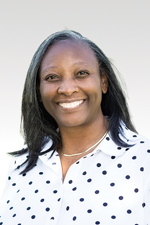Hands-on, Practical Guidance for Educators
From math,
literacy, science, equity, multilingual learners, and SEL, to assessment, school counseling,
and education leadership, our books are research-based and authored by experts
on topics most relevant to what educators are facing today.

Simplifying STEM [6-12]
with Katelyn M. LeRoy and Christine A. Pickett
This practical guidebook is designed to help educators create integrated STEM learning experiences that are inclusive for all students and allows them to experience STEM as scientists, innovators, mathematicians, creators, engineers, and technology experts!
- Grade Level: 6-12
- ISBN: 9781071917060
- Published By: Corwin
- Series: Corwin Mathematics Series
- Year: 2024
- Page Count: 192
- Publication date: January 17, 2024
Review Copies
Review copies may be requested by individuals planning to purchase 10 or more copies for a team or considering a book for adoption in a higher ed course. Request review copy
![Simplifying STEM [6-12] - Book Cover](https://corwinpress.azureedge.net/sp-corwinpress-prod/images/default-source/books/book-285696-v285696-129475-u63832026480000000.jpg?sfvrsn=1c233cfe_0)





